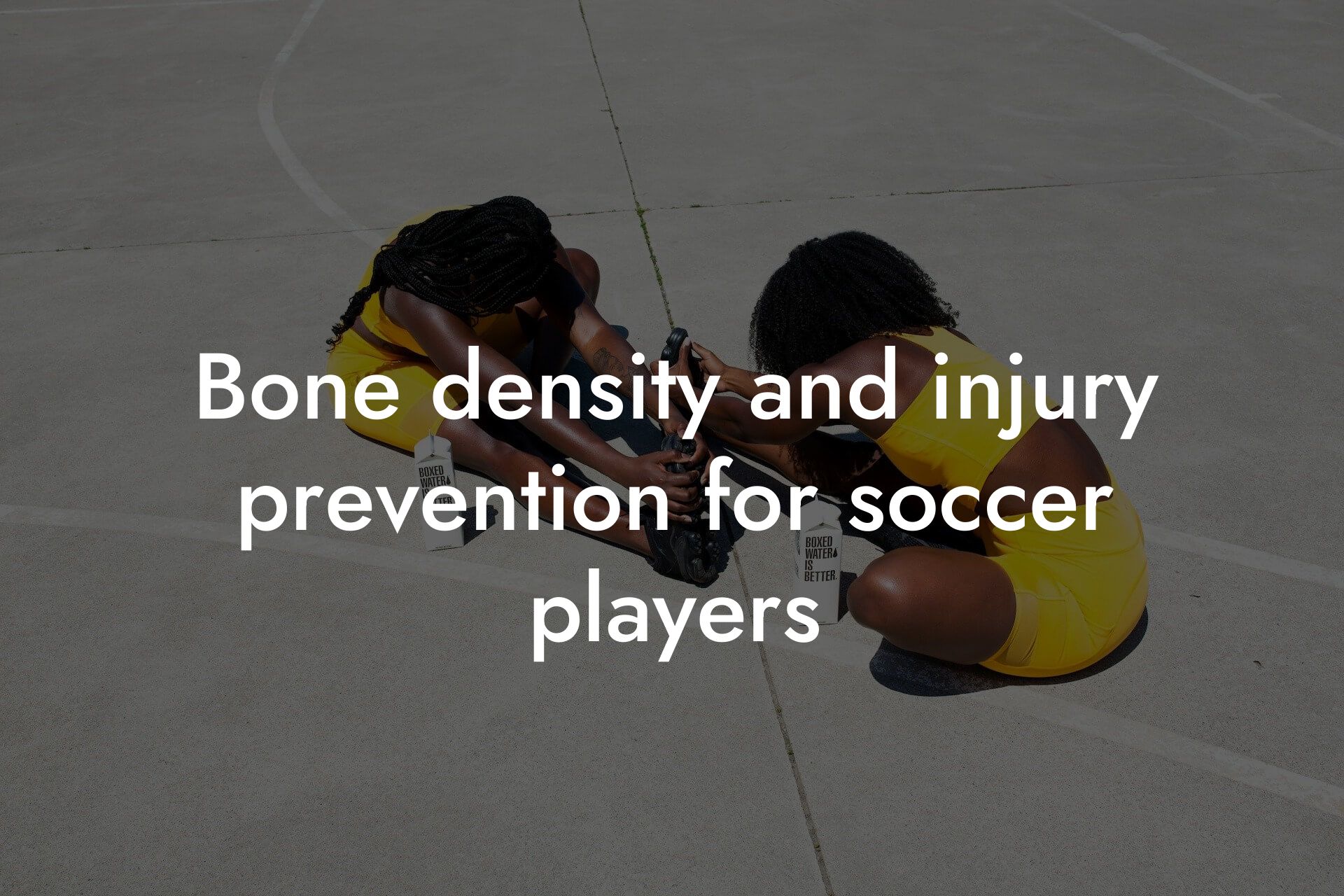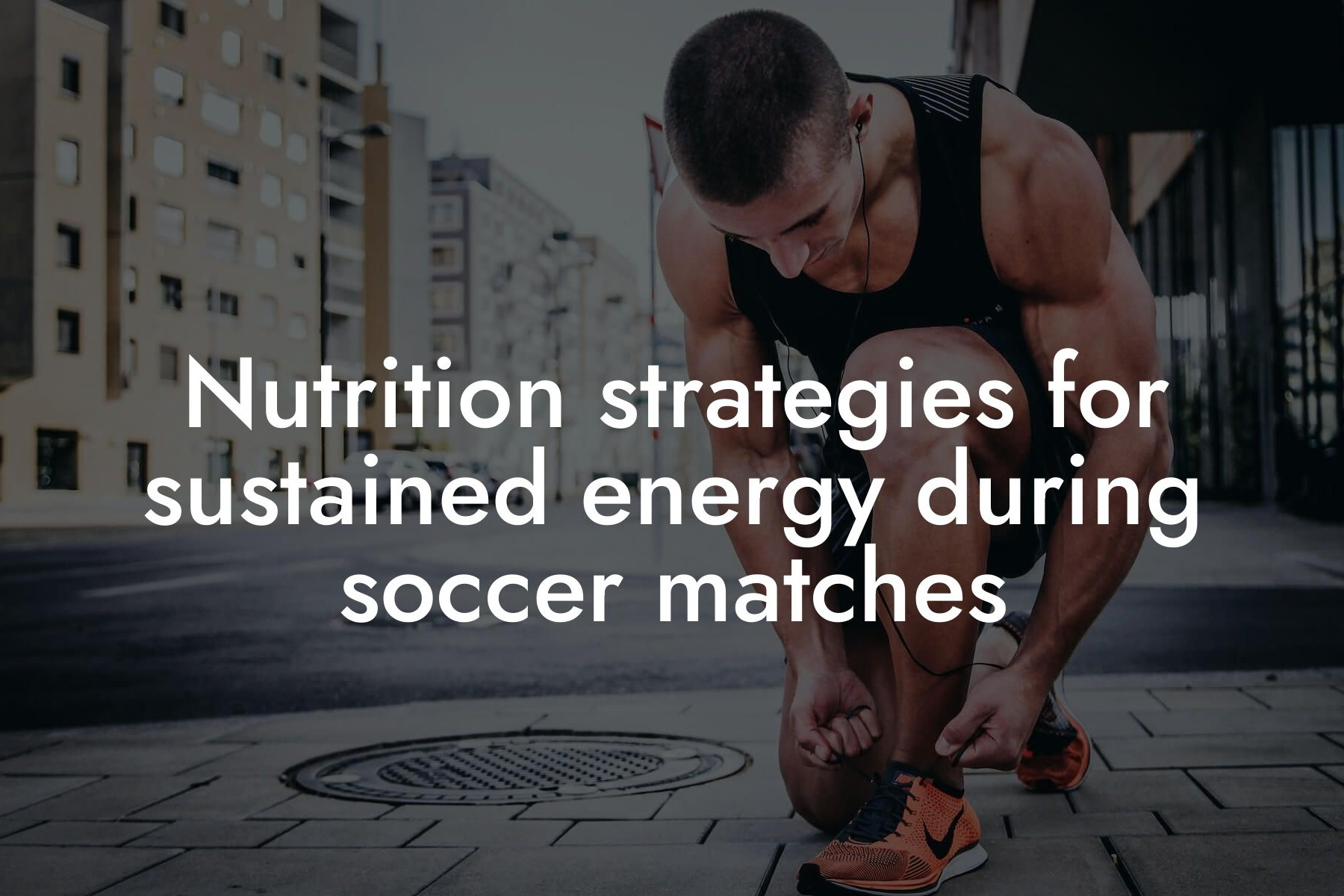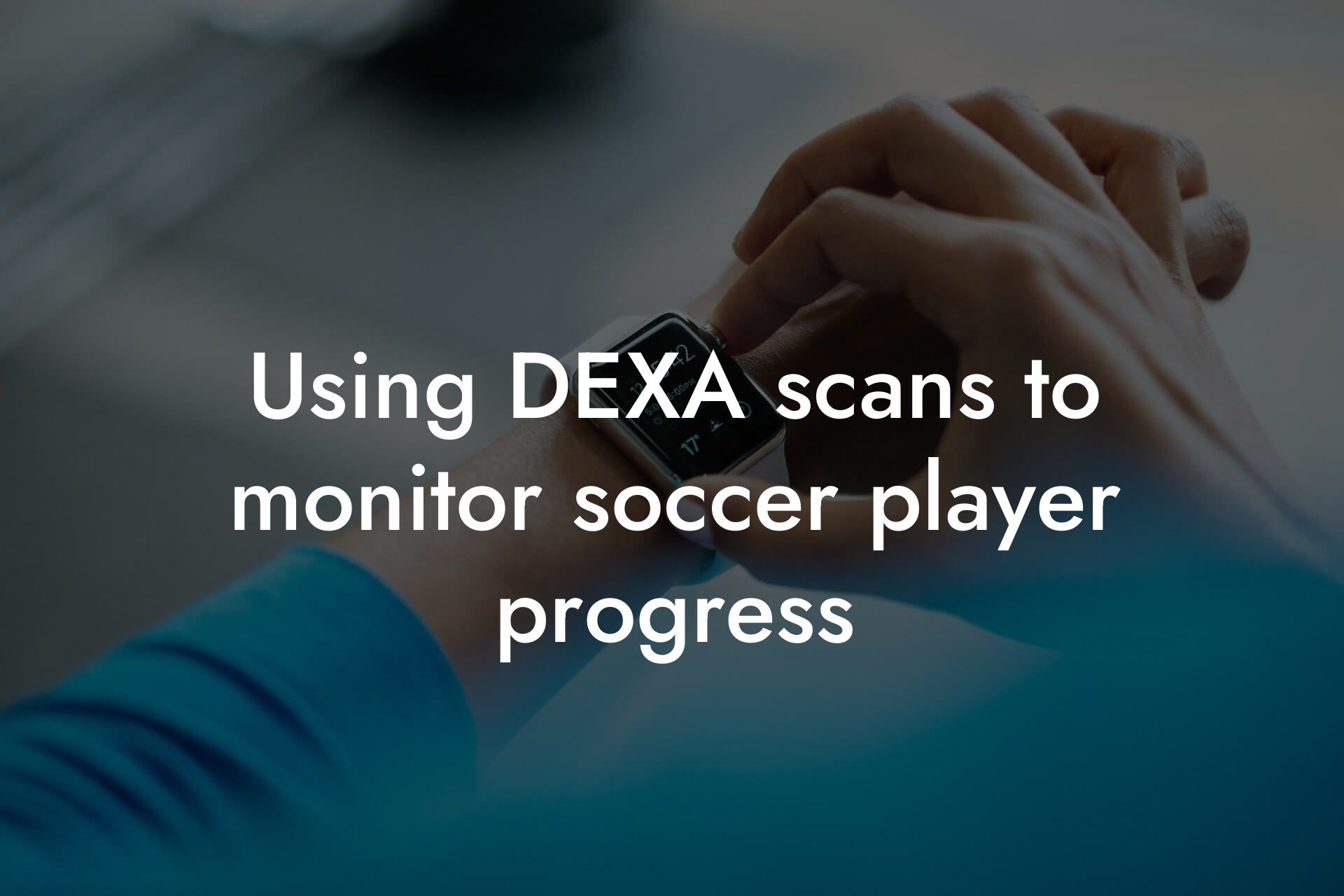As a high-earning professional, you understand the importance of maintaining peak physical performance to excel in your career. As a soccer player, you push your body to its limits during matches, and proper recovery is crucial to prevent injuries, improve performance, and maintain overall well-being. At Tano Performance Group, we specialize in providing comprehensive body assessments using DEXA machines, empowering you with the knowledge to optimize your physique and take your game to the next level. In this article, we'll delve into the essential recovery techniques for soccer players after matches, ensuring you're equipped to perform at your best.
Table of Contents
The Importance of Recovery in Soccer
Recovery is a critical component of a soccer player's training regimen. During a match, your body undergoes intense physical stress, resulting in micro-tears in muscles, depletion of energy stores, and inflammation. If not addressed, this can lead to fatigue, decreased performance, and increased risk of injury. Effective recovery techniques help to repair and rebuild damaged tissues, replenish energy stores, and reduce muscle soreness, ultimately allowing you to perform at a higher level and maintain a competitive edge.
Immediate Post-Match Recovery (0-30 minutes)
The initial 30 minutes after a match are crucial for recovery. During this period, focus on the following techniques:
1. Stretching and Foam Rolling: Gentle stretching and foam rolling can help reduce muscle tension, improve circulation, and promote relaxation. Focus on major muscle groups such as legs, glutes, and lower back.
2. Hydration and Electrolyte Replenishment: Drink water or a sports drink to replenish lost fluids and electrolytes. Aim to consume 16-20 ounces of fluid for every pound of body weight lost during the match.
3. Compression Garments and Ice Baths: Wear compression garments to improve circulation and reduce muscle soreness. If possible, take an ice bath (10-15 minutes at 50-55°F) to reduce inflammation and muscle damage.
Short-Term Recovery (30 minutes-2 hours)
During this phase, focus on replenishing energy stores and promoting muscle repair:
1. Carbohydrate and Protein Intake: Consume a balanced meal or snack with a 3:1 or 4:1 carbohydrate-to-protein ratio to replenish energy stores and support muscle repair. Examples include a banana with peanut butter or a protein shake with fruit.
2. Massage and Self-Myofascial Release: Receive a massage or use self-myofascial release techniques to promote blood flow, reduce muscle tension, and improve range of motion.
Long-Term Recovery (2-48 hours)
In the hours and days following a match, focus on active recovery techniques to promote muscle repair, reduce inflammation, and improve overall recovery:
1. Light Cardio and Active Recovery: Engage in low-intensity cardio activities such as cycling, swimming, or using a stationary bike to promote blood flow and aid in the removal of waste products.
2. Strength Training and Conditioning: Incorporate strength training exercises to improve muscle strength and endurance. Focus on exercises that target multiple muscle groups at once, such as squats, lunges, and deadlifts.
3. Sleep and Relaxation: Prioritize sleep and relaxation to allow your body to fully recover. Aim for 7-9 hours of sleep and engage in stress-reducing activities such as meditation, yoga, or reading.
Nutrition and Supplementation for Recovery
A well-planned nutrition and supplementation strategy is essential for optimal recovery:
1. Protein-Rich Foods: Consume protein-rich foods such as lean meats, fish, eggs, dairy, and legumes to support muscle repair and growth.
2. Omega-3 Fatty Acids: Include omega-3 rich foods such as salmon, walnuts, and chia seeds in your diet to reduce inflammation and promote recovery.
3. Antioxidants and Anti-Inflammatory Compounds: Consume antioxidant-rich foods such as berries, leafy greens, and other fruits and vegetables to reduce oxidative stress and inflammation.
DEXA Scanning for Optimal Recovery
At Tano Performance Group, we understand the importance of accurate body composition analysis in optimizing recovery. Our DEXA scanning technology provides a comprehensive assessment of body fat percentage, lean mass, bone density, and other key metrics. This information enables you to:
1. Monitor Progress: Track changes in body composition over time, allowing you to adjust your training and nutrition strategies accordingly.
2. Identify Areas for Improvement: Pinpoint areas of inefficiency in your training and nutrition, enabling you to make targeted improvements.
3. Optimize Recovery: Use DEXA scan data to tailor your recovery strategies to your specific needs, ensuring you're addressing areas of muscle imbalance and promoting optimal recovery.
Recovery is a critical component of a soccer player's training regimen. By incorporating the techniques outlined in this article, you'll be well on your way to optimizing your recovery and performing at your best. Remember to prioritize nutrition, hydration, and sleep, and consider incorporating DEXA scanning into your recovery strategy. At Tano Performance Group, we're committed to helping you achieve your goals and take your game to the next level.
Frequently Asked Questions
What is the importance of recovery techniques for soccer players after matches?
Recovery techniques are crucial for soccer players after matches as they help to alleviate fatigue, reduce muscle soreness, and promote physical and mental restoration. This enables players to return to their optimal performance level more quickly, reducing the risk of injury and improving overall team performance.
What are the common signs of fatigue in soccer players after matches?
Common signs of fatigue in soccer players after matches include muscle soreness, stiffness, decreased strength and power, reduced speed and agility, and mental exhaustion. If left unaddressed, fatigue can lead to decreased performance, increased risk of injury, and prolonged recovery times.
What is the role of stretching in recovery for soccer players?
Stretching plays a vital role in recovery for soccer players as it helps to increase flexibility, reduce muscle tension, and promote blood flow to the affected areas. This can be achieved through static stretches, dynamic stretches, or proprioceptive neuromuscular facilitation (PNF) stretching.
How does foam rolling aid in recovery for soccer players?
Foam rolling is a self-myofascial release technique that helps to reduce muscle soreness, improve circulation, and break down adhesions in the muscle tissue. This can be particularly beneficial for soccer players who experience delayed onset muscle soreness (DOMS) after matches.
What is the importance of hydration in recovery for soccer players?
Hydration is essential for soccer players after matches as it helps to replenish lost fluids, electrolytes, and energy stores. Adequate hydration can reduce muscle cramping, improve physical performance, and promote faster recovery.
What are the benefits of compression garments in recovery for soccer players?
Compression garments can help to improve blood flow, reduce muscle soreness, and promote faster recovery in soccer players. They can also provide support and stability to the affected areas, reducing the risk of injury.
How does cryotherapy aid in recovery for soccer players?
Cryotherapy, such as ice baths or cold water immersion, can help to reduce inflammation, muscle soreness, and fatigue in soccer players. It can also improve recovery by reducing muscle spasms, improving circulation, and promoting relaxation.
What is the role of nutrition in recovery for soccer players?
Nutrition plays a critical role in recovery for soccer players as it provides the necessary building blocks for muscle repair, replenishes energy stores, and supports immune function. A balanced diet that includes protein, complex carbohydrates, and healthy fats can help to promote faster recovery and improve overall performance.
How does sleep impact recovery for soccer players?
Sleep is essential for recovery in soccer players as it allows the body to repair and adapt to the physical demands of the game. Adequate sleep can improve physical performance, reduce fatigue, and promote faster recovery, while sleep deprivation can have negative effects on performance and increase the risk of injury.
What are the benefits of massage therapy in recovery for soccer players?
Massage therapy can help to reduce muscle soreness, improve circulation, and promote relaxation in soccer players. It can also improve range of motion, reduce muscle tension, and promote faster recovery.
How does active recovery aid in recovery for soccer players?
Active recovery, such as light cardio or stretching, can help to promote blood flow, reduce muscle soreness, and improve recovery in soccer players. It can also help to maintain cardiovascular fitness and reduce the risk of detraining.
What is the importance of mental recovery for soccer players?
Mental recovery is essential for soccer players as it allows them to recharge, refocus, and prepare for the next match. Techniques such as meditation, visualization, and positive self-talk can help to reduce mental fatigue, improve mood, and promote faster recovery.
How does yoga aid in recovery for soccer players?
Yoga can help to improve flexibility, balance, and strength in soccer players, while also reducing muscle tension and improving recovery. It can also promote relaxation, reduce mental fatigue, and improve overall well-being.
What are the benefits of contrast showers in recovery for soccer players?
Contrast showers, which involve alternating between hot and cold water, can help to reduce muscle soreness, improve circulation, and promote faster recovery in soccer players. They can also help to reduce inflammation and improve mental relaxation.
How does electrostimulation aid in recovery for soccer players?
Electrostimulation, such as neuromuscular electrical stimulation (NMES), can help to improve muscle strength, reduce muscle soreness, and promote faster recovery in soccer players. It can also help to improve circulation and reduce inflammation.
What is the role of protein in recovery for soccer players?
Protein is essential for recovery in soccer players as it provides the necessary building blocks for muscle repair and growth. Adequate protein intake can help to promote faster recovery, improve muscle function, and support immune function.
How does carbohydrate intake impact recovery for soccer players?
Carbohydrate intake is important for recovery in soccer players as it helps to replenish energy stores, support muscle function, and promote faster recovery. Adequate carbohydrate intake can also help to reduce muscle fatigue and improve overall performance.
What are the benefits of antioxidants in recovery for soccer players?
Antioxidants, such as vitamins C and E, can help to reduce oxidative stress, inflammation, and muscle damage in soccer players. They can also promote faster recovery, improve immune function, and reduce the risk of illness and injury.
How does creatine supplementation aid in recovery for soccer players?
Creatine supplementation can help to improve muscle strength, power, and endurance in soccer players, while also reducing muscle fatigue and improving recovery. It can also help to improve cognitive function and reduce the risk of injury.
What is the importance of individualized recovery plans for soccer players?
Individualized recovery plans are essential for soccer players as they take into account the player's specific needs, goals, and circumstances. This can help to optimize recovery, improve performance, and reduce the risk of injury.
How can soccer players incorporate recovery techniques into their daily routine?
Soccer players can incorporate recovery techniques into their daily routine by prioritizing rest, nutrition, and hydration, and incorporating activities such as stretching, foam rolling, and compression garments into their daily routine.
What are the benefits of working with a sports dietitian or nutritionist for soccer players?
Working with a sports dietitian or nutritionist can help soccer players to optimize their nutrition and hydration plan, improve recovery, and enhance overall performance. They can also provide personalized guidance and support to help players achieve their goals.
How can soccer players monitor their recovery and adjust their techniques accordingly?
Soccer players can monitor their recovery by tracking their fatigue levels, muscle soreness, and performance metrics, and adjusting their recovery techniques accordingly. They can also work with coaches, trainers, and sports scientists to develop a personalized recovery plan.
Here are some related articles you might love...
- Bone density and injury prevention for soccer players
- Nutrition strategies for sustained energy during soccer matches
- Using DEXA scans to monitor soccer player progress
- Strength training programs for amateur soccer players
- The impact of body composition on soccer performance
- Off-season conditioning for amateur soccer athletes
- Reducing body fat to enhance agility and speed in soccer
- Hydration and nutrition tips for weekend soccer warriors
Zak Faulkner
Zak Faulkner is a leading authority in the realm of physical health and body composition analysis, with over 15 years of experience helping professionals optimise their fitness and well-being. As one the experts behind Tano Performance Group, Zak has dedicated his career to providing in-depth, science-backed insights that empower clients to elevate their physical performance and overall health.
With extensive knowledge of DEXA technology, Zak specializes in delivering comprehensive body assessments that offer precise data on body fat, muscle mass, bone density, and overall physique. His expertise enables individuals to make informed decisions and achieve their fitness goals with accuracy and confidence. Zak’s approach is rooted in a deep understanding of human physiology, combined with a passion for helping clients unlock their full potential through personalised strategies.
Over the years, Zak has earned a reputation for his commitment to excellence, precision, and client-focused service. His guidance is trusted by top professionals who demand the best when it comes to their health. Whether advising on fitness programs, nutritional strategies, or long-term wellness plans, Zak Faulkner’s insights are a valuable resource for anyone serious about taking their health and fitness to the next level.
At Tano Performance Group, Zak continues to lead our Content Team revolutionising how professionals approach their physical health, offering unparalleled expertise that drives real results.




